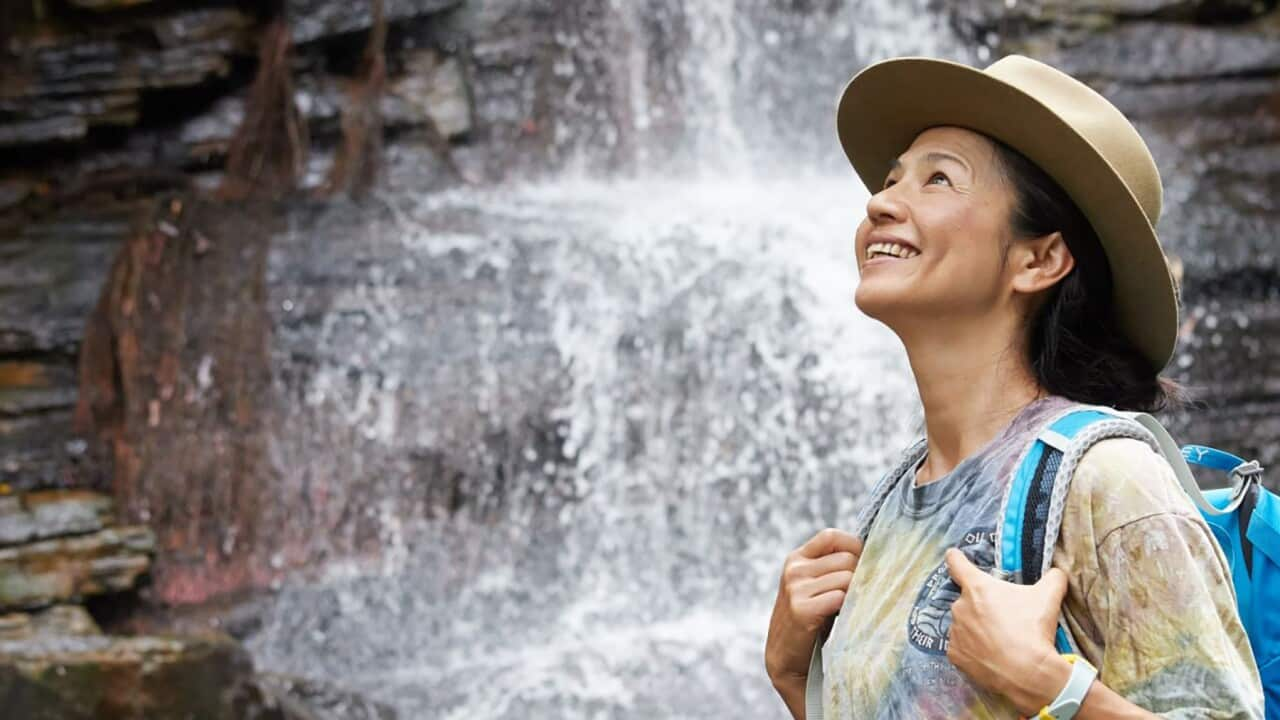Highlights
- Coined in the 1980s, the term 'Shinrin-yoku' is Japanese for 'forest bathing'
- The practice involves spending time mindfully in a natural environment
- Studies suggest spending time in nature is an effective way to reduce stress and anxiety
The benefits of spending time in nature have long been recognised.
Many studies have shown that spending time in the great outdoors can help reduce anxiety and stress, and improve concentration and creativity.
The SBS podcast Great Minds delves into the Japanese tradition of Shinrin-yoku, or 'forest bathing', which encourages participants to engage with nature using all five senses.
Contrary to its name, the practice does not involve bathing in water. It's simply about mindfully taking in your natural surroundings.
History of forest bathing
A practice with ancient roots, Shinrin-yoku developed in 1980s Japan as a form of preventative health care and healing.
As studies validated the health benefits of exposure to nature, both the Japanese and South Korean governments incorporated Shinrin-yoku into their national health systems.
Acts such as listening to the sounds of nature, meditating in green space or simply taking the time to notice your surroundings are all examples of shinrin-yoku.
Led by Mayumi Kataoka, the Great Minds podcast invites you to experience a forest bathing meditation.
Mayumi is a Sydney-based certified Forest Therapy Guide who found Shinrin-yoku while searching for a better way to connect to nature as a photographer. She now leads therapeutic walking tours in Sydney.
"In Shinrin-yoku, people embrace nature with their five senses to feel calm and relaxed," she says.
Shinrin-yoku, she says, is practised by focusing on the present moment and exhibiting awareness of the sights and sounds that accompany your walk.
Benefits of forest bathing
The practice has garnered a lot of scientific interest in recent years.
A meta-analysis published in the journal Environmental Research found that people who spend more time in green spaces have lower risk of several chronic diseases.
The researchers, from the University of East Anglia, tracked a staggering 290 million participants across 20 different countries.
The study concluded that spending more time in green spaces was linked to lower levels of the stress hormone cortisol. It can also lower heart rate and blood pressure, reduce the risk of diabetes, improve mental health, lower cholesterol levels, and reduce all-cause mortality rate.
